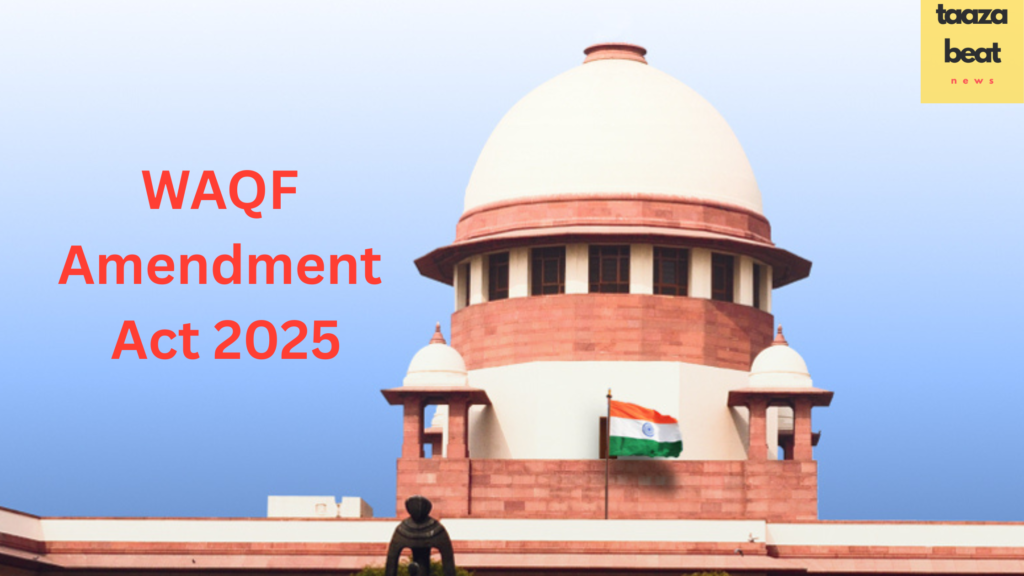The Supreme Court is set to hear a series of petitions today challenging the controversial Waqf (Amendment) Act, 2025 — a law that has sparked widespread political tension and protests, especially in West Bengal.
A three-judge bench, headed by Chief Justice Sanjiv Khanna and including Justices Sanjay Kumar and K.V. Viswanathan, will take up at least 10 petitions related to the law at 2 PM.
While the Centre maintains that the amended law simply aims to correct irregularities in the management of Waqf properties, critics argue it violates constitutional rights and unfairly targets the Muslim community.
Political Tempers Flare
Union Minister Kiren Rijiju has come out strongly against West Bengal Chief Minister Mamata Banerjee, accusing her of provoking unrest over the amended law. He alleged that Banerjee is “openly inciting violence” by refusing to implement the law in her state.
“She is holding a constitutional post. How can she say she won’t follow a law passed by Parliament?” Rijiju asked during a media briefing. He also clarified that the law isn’t against any community but is meant to stop land grabbing and restore fairness in how religious endowments are handled.
Rijiju further pointed out that while the Waqf Board owns some of the largest property holdings globally, many underprivileged Muslims—especially women and children—see little benefit from it. According to him, the amendments aim to address this imbalance.
Who Is Challenging the Law?
The petitions before the court come from a wide range of political parties and religious groups. Congress, AAP, DMK, CPI, and JDU leaders are among those questioning the law’s validity. Organizations like Jamiat Ulema-e-Hind and the All India Muslim Personal Law Board have also joined the fight.
AIMIM chief Asaduddin Owaisi has argued that the Act strips away key protections previously given to Waqf properties, while AAP MLA Amanatullah Khan has objected to the inclusion of non-Muslim members in Waqf Boards—calling it a violation of Article 14.
In a surprising twist, a Sikh petitioner, Daya Singh from Gurgaon, has also moved the court. He claimed that the law discriminates by preventing non-Muslims from making charitable endowments as Waqfs. “This goes against our secular Constitution,” he said, accusing the Act of denying freedom of religious expression and property rights.
BJP States Back the Law
Six BJP-ruled states—Madhya Pradesh, Rajasthan, Chhattisgarh, Assam, Maharashtra, and Uttarakhand—have thrown their weight behind the amended law. They’ve requested the court to let them be part of the hearings to defend the government’s position.
The Centre insists that the amendments were drafted after consultations and reviewed by a Joint Parliamentary Committee. Officials argue it’s not about religion, but about transparency and fairness in managing charitable land.
What Happens Next?
The Supreme Court’s verdict could have wide-reaching implications for how religious properties are governed in India. With protests, politics, and legal arguments all colliding, today’s hearing could mark a turning point in the ongoing debate.




